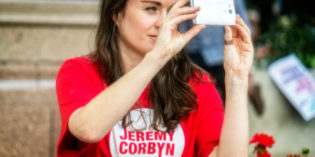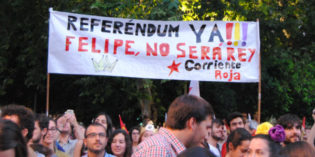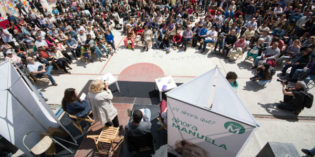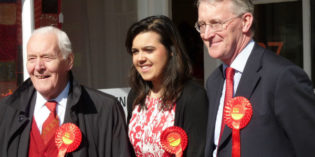Informing and engaging citizens

Concentrating minds: how the Greeks designed spaces for public debate
What can we learn from ancient Greece when it comes to designing spaces for political debate? In an article for Theatrum Mundi, Richard Sennett describes how ancient Athenians used amphitheatres and the agora to debate, take decisions and participate in public life. He recalls Aristotle’s notion of how a complex urban society could reconcile differences. Modern societies – […]

The Labour party, Momentum and the problem with intra-party democracy
The Momentum movement and the rise in Labour membership are, Jeremy Corbyn’s supporters argue, proof that the party is returning to its roots and embracing ordinary people’s concerns. But political scientists tend to be sceptical about intra-party democracy, because party members are usually more radical than the average voter. Fabio Wolkenstein says claims that Labour has […]

Reluctant elites: democratic innovations are popular – but rare. Brexit shows why
People want more say in the democratic process – by voting in referendums and taking part in town hall debates, for example. But in fact these kinds of democratic innovation are rare. Caroline Close and Lidia Núñez explain how parties in power have a vested interest in keeping things the way they are, particularly given how risky referendums can […]

Through a glass, darkly: what should parliaments be built from?
Visitors to the Reichstag in Berlin can climb to a glass cupola and look down on parliamentarians. The architects, Foster and Partners, wanted the building to embody transparency between the public and politicians. But, argues John Bingham-Hall, they failed. Visitors merely observe the activity beneath them. He explains why wood – which is light, cheap […]

The empathy gap: understanding why some people don’t vote
Not everyone votes. Using data from the 2015 Finnish National Election Study, Kimmo Grönlund and Hanna Wass look at what factors make a person less likely to go to the polls or get involved in politics. They warn against assuming non-voting is a matter of personal choice and suggest ways to overcome the ‘solidarity deficit’ that emerges […]

What can political scientists tell us about politics?
Reflecting on his experience of the 2011 Egyptian revolution, Fredrik Uggla asks what expertise political scientists can bring to bear on politics. What are the strengths and shortcomings of their contribution when it comes to devising policy and analysing new developments? He urges colleagues to be cautious about proposing solutions but to instead embrace the role […]

Why Labour can’t get a grip: the power v principles conundrum
Labour’s future direction is at stake. Its leader has the backing of a large part of the membership, yet appears to have no prospect of forming a government in order to deliver upon his vision. Although the trigger was the (tokenistic) addition of Jeremy Corbyn on the ballot paper in 2015, the crisis is caused […]





 Democratic Audit's core funding is provided by the Joseph Rowntree Charitable Trust. Additional funding is provided by the London School of Economics.
Democratic Audit's core funding is provided by the Joseph Rowntree Charitable Trust. Additional funding is provided by the London School of Economics.